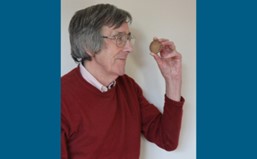Emeritus Professor Chris Potts – University of Southampton

Professor Maria Grazia Speranza – University of Brescia

Vehicle routing problems: yesterday, today and tomorrow
Vehicle routing problems have attracted over the years a huge amount of research. This is due to the practical relevance of this class of combinatorial optimization problems, to the large number of interesting variants the class contains and to the fact that these problems are among the computationally hardest problems to solve.
In this talk I will present an overview of the most studied vehicle routing problems, will discuss some of the problems that have recently attracted attention, such as integrated vehicle routing problems, and some of the directions for future research.
Professor Thomas Stützle – Université Libre de Bruxelles

A few examples of automated design of algorithms
The design and development algorithms can be time-consuming and difficult for a number of reasons including the complexity of the problems being tackled, the large number of degrees of freedom when designing an algorithm and setting its numerical parameters, and the difficulties of algorithm analysis due to heuristic biases and stochasticity. Still very often this design is done manually, mainly guided by the expertise and intuition of the algorithm designer. However, the advancement of automatic algorithm configuration methods offers new possibilities to make this process more automatic, avoid some methodological issues, and at the same time improve the performance of algorithms.
In this talk, I will highlight the advantages of addressing algorithm design and configuration by algorithmic techniques and discuss some of the main successful applications of automatic design we have in our own work. In particular, I will show how automatic configuration tools may be used to improve the anytime behaviour of stochastic local search algorithms and integer programming solver. After that, I will show how we can, with in part the same methodology, design multi-objective algorithms. Furthermore, I will show how flexible, grammar-based algorithm frameworks can support the automatic design of high-performing hybrid stochastic local search algorithms. I will conclude arguing that automatic algorithm design will have the power to transform the way algorithms for difficult problems are designed in the future.